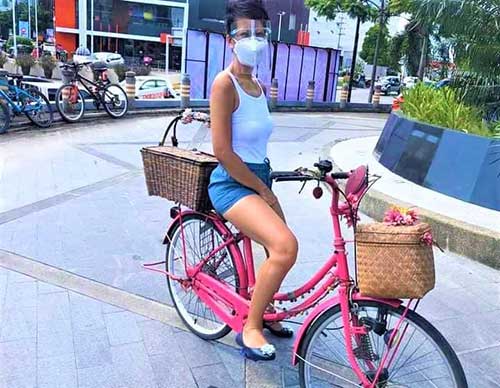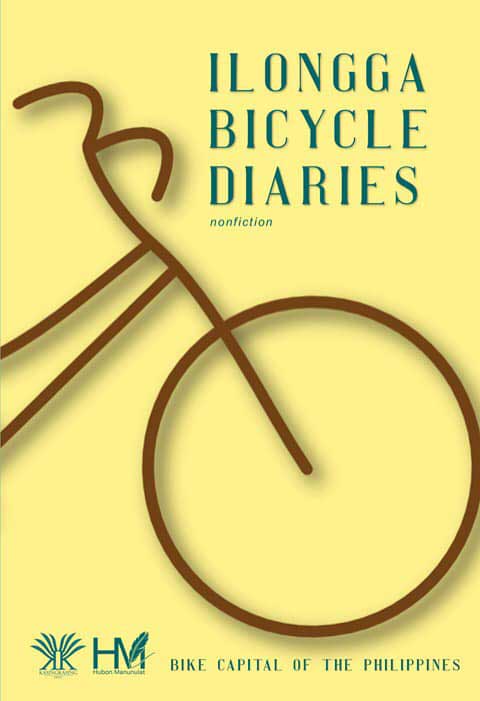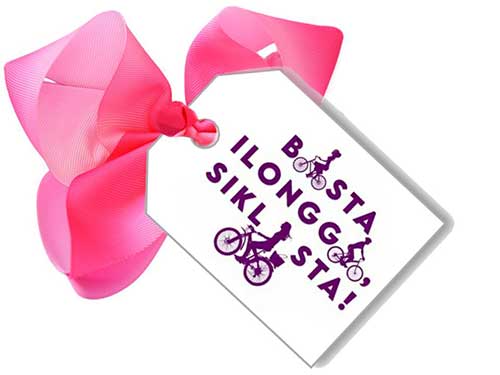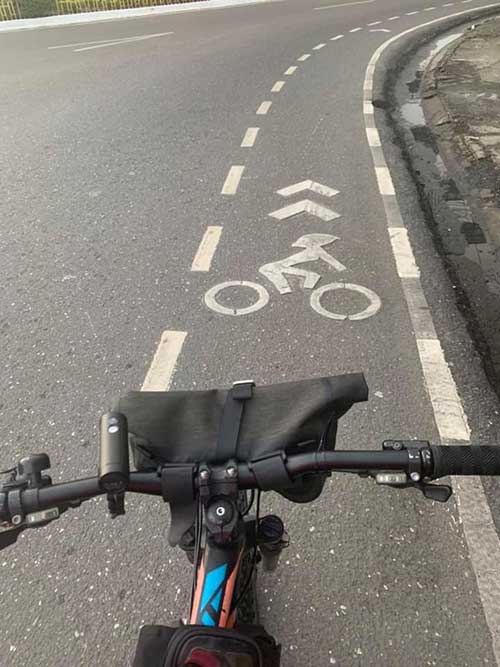
By Tima Oramad
HER English name escapes me.
As an ESL (English as a Second Language) teacher, meeting a new student every so often is part of the work cycle, and forgetting names, inevitable. I must have taught more than a thousand learners in all my years of teaching, and I’d struggle to remember the names of even those who impressed me the most.
Before going into that first class with her, as I was on my bicycle riding to the office, I made a mental note to keep things casual, friendly. The desire to supplant the “myth” about me—that I was this stern, uncompromising tutor who demanded grammar perfection—was irresistible.
That day the teaching floor was pleasantly bare and quiet. Most students had already gone back home to Korea. With the peak winter season over, we would have to wait about a month for the next batch. In the meantime, only the senior tutors were around to keep things going.

I planned to start off with the usual basic questions and build my way up to find out what we possibly shared in terms of traits, habits, and hobbies. Even when looking for what I had in common with my students is often an overreach, I was bent on finding mutual ground between us.
That ‘mutual ground’ would turn out to be COVID-19. And that day would turn out to be the last day I biked to work.
In fact, she was just coming out of a two-week quarantine period, during which she was kept in a dorm room, alone, with zero human contact. So while everyone else was going about their lives, she had become a silent statistic, an unwitting preview of the pandemic that was spreading at great speed across continents unbeknownst to most, including myself.
A knock on my cubicle door interrupted our conversation. Our Korean boss wanted her in his office for a meeting. Ten minutes later, she returned to my room in tears and with a sobering announcement: she had to pack up and depart the Philippines within the next 48-hours. There were rumors of a lockdown and, rather than risk getting stranded in a foreign country, she knew leaving was the most reasonable course of action. Our quick goodbyes felt weird; we had just met and yet both of us were tearful.
I remember worrying about her and another student. I remember asking them if they had masks and rubbing alcohol, or if they would like me to buy for them. I remember asking in earnest a day later if they had managed to get airline tickets. I remember feeling genuinely relieved to find out they were safe back home.
But I do not remember her name.
And, in just the span of a year—one that felt unbearably long—I have forgotten and metaphorically lost many other things.
How fun it is to be spontaneous, for one.

At my house, my son and I enjoy acting instantly on our cravings. He would, for instance, suddenly remember how we have not had Tinapayan’s mocha cake in a while, and I would say, Oh, yeah, right! And then I’m out the door to buy half a roll. Or I would straight off pine for ube cheese de sal and, just like that, bike to a Tibiao branch without need for much planning. Or perhaps I find that I’m all out of sesame seeds or that we’re running low on milk or that the rice bin is almost empty. And while these were daily concerns I dealt with in a straightforward manner because they were almost formulaic—if x happens then I will do y to get z—the spontaneity lay in the fact that I could up and leave on my bicycle without having to put on protective gear and be pursued by the invisible yet heavy presence of a virus that could sicken me to a lonesome death. (As though Death were not isolating enough.)
Sadly, 2020 now seems like decades ago, and 2019, a bygone era. Being spontaneous, really, is no longer an option. Everything we do now feels regimented. We hide behind doors, walls, gates, masks, and shields. We have become masters of measurements, able to estimate the length of a ‘safe distance’ simply with our eyes and in direct proportion to our distrust of the stranger in front of or behind us.
This virus, despite its global reach, is terribly insulating.
In the first week after the imposition of the Enhanced Community Quarantine here in Iloilo City, we ran out of drinking water. In the past, that was a very minor problem because our trusted neighborhood pedicab driver slash handyman was always conveniently available to carry out requests for a minimal fee. But on that day there were hardly any sikads outside, and I had to stand by my gate for an unusually long time before I was finally able to hail an off-duty driver who graciously accommodated my petition.
What was more atypical, however, was how the next things unfolded.

By the time the driver had fetched his pedicab and returned, I had carried all three empty five-gallon jugs and placed them outside the gate. I had my mask and plastic gloves on but spoke to him from behind the entryway, half-opened by a stool slightly jutting out. Pointing to the seat, I instructed him to pick up my payment (which I put inside a small plastic bag) for the refilling and his service and not bother with giving me my change afterwards. He followed my instructions to a T and knocked on my gate soon after to let me know that the water jugs, now filled, were by the gate once more.
We rolled the containers up to the porch but no further. They were certainly not going to enter the house until they were all disinfected. First with a chlorinated water spray; next, with an alcohol rubdown. We left them to dry thoroughly in the remaining heat of the late afternoon sun, then vigorously washed our hands before marveling at the complexities now of even the most mundane of things.
A year ago, all this would have been considered extreme behavior, but not anymore. Now you need to cover all your bases and then some. Overthinking is good now and could mean the difference between six feet of physical distancing and six feet below the ground. Clean is no longer enough; sterile is better. We have to be antiseptic, antibacterial, antiviral.
But even though I have somewhat settled into my new normal, there are still moments when I just can’t believe how our lives have come to this.
My saving grace has been my bicycle. While all I’ve seen since the contagion began have been glimpses of friends and have mostly only heard my mom on the phone, Ms. Audrey and I have been together a lot throughout this pandemic. She is my pink emflowered steed, the one who safely conveys me from place to place and allows me to be alone but not quite lonely. On her, it is possible to imagine normalcy, to pretend like this virus never jumped from host animal to human to bring suffering and loss.
On Ms. Audrey I have courageously pedaled through the streets of Iloilo City, past checkpoints, to go from one drugstore to the next in search of my mom’s heart medicine despite the fear borne from an over-imaginative mind that the virus could be in the very air I was breathing, hovering, opportunistic. She steered me away from crowds, waited in quiet for my return as I ran my errands, endured the constant wipe-downs of her handlebars with alcohol, bore the heavy loads, and brought me home in one piece, refreshed.
From her point of view, everything has to move forward, ever forward, but—off the saddle—it’s the uncertainty of a future fraught with peril that has stopped me in my tracks. I am scared. And it’s an immense challenge to accept the fact that I have absolutely no control over what could happen. Sure, this was true even before the pandemic, but there was at least comfort in the routine of my daily life before. Though I am really not the adventurous-type, this past year has made me all the more timid, more introverted. What little was left of my brand of daring seems now completely gone, replaced by selfish yet urgent self-preservation.
Perhaps one day I will start to un-forget things: un-forget the spontaneity of hugging a friend; un-forget the recklessness of buying siopao at 7-11; un-forget the impulsive side trips to the downtown area, and the utter disregard for the setting sun.
But until then, whether I am able to pick up where I have left off or not, or whether it takes me forever to recover or to become a little less broken, a little less unhinged, you shall find me still on my bicycle. Because if this pandemic has not stopped me from riding, then perhaps nothing will.


















